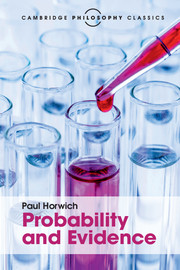Summary
If a theory entails that a certain statement is true and it is known that the statement is indeed true, this constitutes a reason to believe the theory. However, various other factors may influence the strength of such evidence. In this chapter I want to explore four superficially related intuitions concerning the degree of confirmation provided by theoretically entailed data: (l) the view that verification of relatively surprising consequences of a theory has especially great evidential value; (2) the idea that survival through severe experimental tests provides a theory with particularly strong support; (3) that the postulation of ad hoc hypotheses is generally disreputable; and (4) that the successful prediction of subsequently verified events boosts the credibility of whatever theory is employed to a greater extent than the subsumption or accommodation of previously known results.
It is tempting to regard these intuitions as manifestations of a single underlying phenomenon. For, one might suppose, mere subsumption of known data is inferior to prediction since it is tainted with ad hocness; ad hoc hypotheses are undesirable because the facts to which they are tailored have not derived from a genuine test of the new theory; and a genuine, relatively severe test of a theory is one which it is relatively likely to fail – where the data which would constitute passing are relatively improbable and surprising. Thus, our ideas about surprising consequences, severe tests, ad hoc hypotheses, and prediction versus subsumption, seem to be intimately related. I will argue, however, that this line of thought is almost wholly mistaken. (3) is explained independently of (l) and (2); and (4) is shown to be incorrect.
Surprise
Let us start with the question: what makes something surprising? Presumably, it is sufficient that we strongly believed, until the moment of truth, that it would not happen. But violation of active expectations cannot be the whole story since we can be reasonably taken aback by things that we had no occurrent beliefs about – explosion of the moon, for example.
Information
- Type
- Chapter
- Information
- Probability and Evidence , pp. 93 - 109Publisher: Cambridge University PressPrint publication year: 2016
